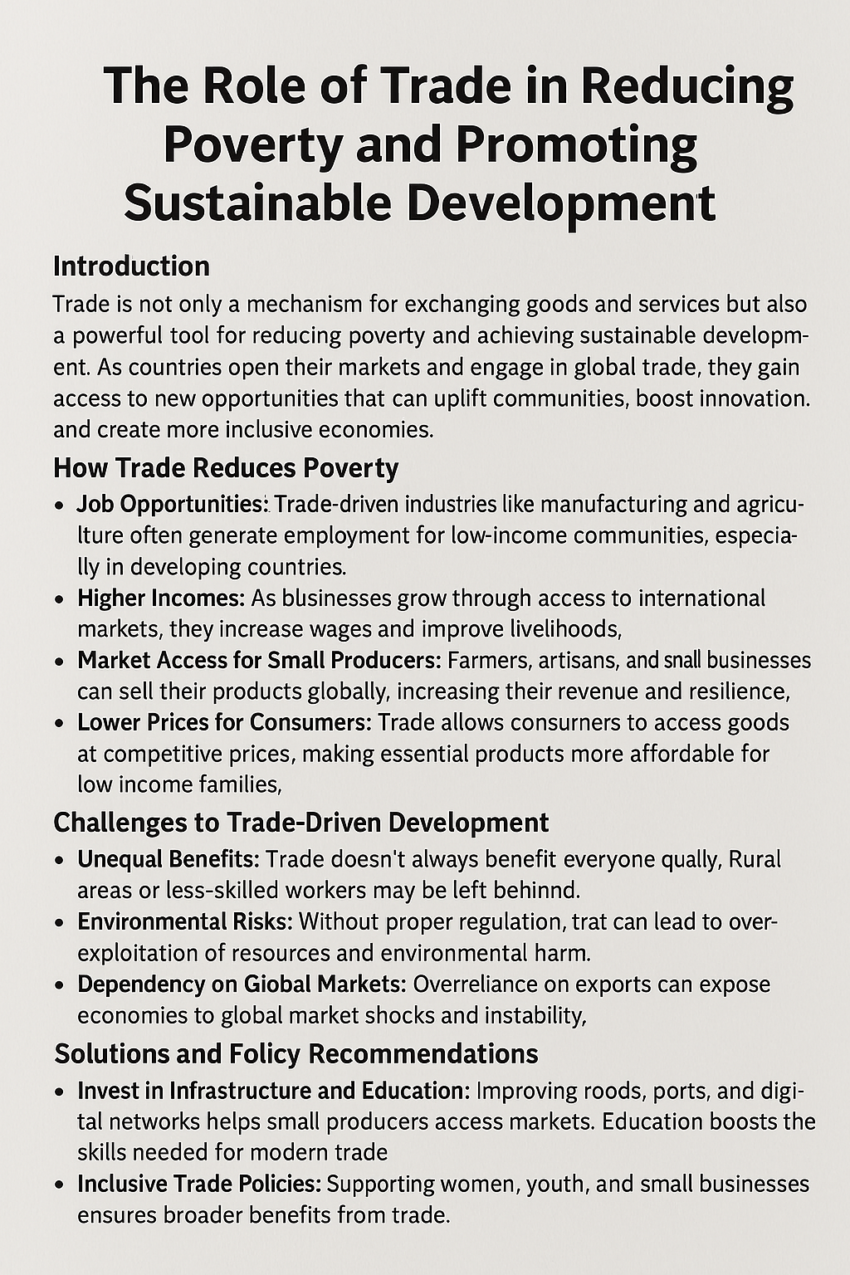Introduction
Trade is not only an exchange of goods and services but also a powerful tool for poverty reduction and sustainable development. As countries open their borders and engage in international trade, they gain new possibilities that can raise communities, promote innovation, and construct more inclusive economies.
How Trade Reduces Poverty
Job Opportunities: Trade-driven industries like manufacturing and agriculture often generate employment for low-income communities, especially in developing countries.
Higher Incomes: As businesses grow through access to international markets, they increase wages and improve livelihoods.
Market Access for Small Producers: Farmers, artisans, and small businesses can sell their products globally, increasing their revenue and resilience.
Lower Prices for Consumers: Trade allows consumers to get products at competitive prices, hence making essential products affordable for low-income families.
Trade and Sustainable Development
Economic Sustainability: Trade enhances competition and innovation, resulting in nations diversifying their economies and reduced dependence on a single sector.
Environmental Sustainability: Through the sharing of green technologies and environmental standards, trade can promote cleaner and efficient production.
Social Sustainability: Trade can reduce inequality by integrating marginalized groups into the world economy and increasing gender equality through inclusive trade policies.
Challenges to Trade-Driven Development
Imbalanced Gains: Trade does not always benefit all equally. Rural areas or unskilled workers may lag behind.
Ecological Risks: Without regulations, trade could lead to over-extraction of resources and environmental degradation.
Dependence on Global Markets: Over-reliance on exports exposes economies to global market volatility and shocks.
Solutions and Policy Recommendations
Investment in Infrastructure and Education: Improved roads, ports, and digital networks allow small producers to access markets. Education adds to the number of skills for modern trade.
Inclusive Trade Policies: Support to women, youth, and small firms guarantees broader benefits from trade.
Fair Trade Initiatives: Encouraging equitable pay and sustainable procedures throughout worldwide supply chains boosts economic in addition to social outcomes.
Environmental Regulations: Total environmental specifications under trade deals may reduce harm as well as enhance long-term sustainability.
Conclusion
Trade can be a force for good if regulated well. When states aim at inclusiveness and sustainability, they will be in a position to harness the benefits of trade in countering poverty and achieving sustainable development. Governments, the private sector, and international institutions must work together to ensure that trade works for everybody.
